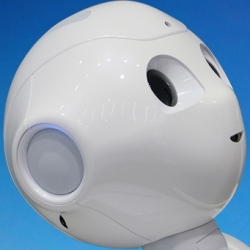
Progress in artificial intelligence and machine learning has recently been accelerating at an exponential pace. Artificial Intelligence is making an extreme entrance into almost every facet of society in both predicted and unforeseen ways, causing both excitement and trepidation. But can we really predict the associated risks involved?
In a continued interview with over 30 artificial intelligence researchers, Techcrunch asked what they considered to be the most likely risk of artificial intelligence in the next 20 years.
Two “greatest” risks bubbled to the top of the response pool (and the majority are not in the autonomous robots’ camp, though a few do fall into this one). According to this particular set of minds, the most pressing short- and long-term risks is the financial and economic harm that may be wrought, as well as mismanagement of AI by human beings.
Dr. Joscha Bach of the MIT Media Lab and Harvard Program for Evolutionary Dynamics summed up the larger picture this way:
“The risks brought about by near-term AI may turn out to be the same risks that are already inherent in our society. Automation through AI will increase productivity, but won’t improve our living conditions if we don’t move away from a labor/wage based economy. It may also speed up pollution and resource exhaustion, if we don’t manage to install meaningful regulations. Even in the long run, making AI safe for humanity may turn out to be the same as making our society safe for humanity.”
Essentially, the introduction of AI may act as a catalyst that exposes and speeds up the imperfections already present in our society. Without a conscious and collaborative plan to move forward, we expose society to a range of risks, from bigger gaps in wealth distribution to negative environmental effects.
Leaps in AI are already being made in the area of workplace automation and machine learning capabilities are quickly extending to our energy and other enterprise applications, including mobile and automotive. The next industrial revolution may be the last one that humans usher in by their own direct doing, with AI as a future collaborator and, dare we say, a potential leader.
In respect to the drastic changes that lie ahead for the employment market due to increasingly autonomous systems, Dr. Helgi Helgason says, “it’s more of a certainty than a risk and we should already be factoring this into education policies.”
Talks at the World Economic Forum Annual Meeting in Switzerland this past January, where the topic of the economic disruption brought about by AI was clearly a main course, indicate that global leaders are starting to plan how to integrate these technologies and adapt our world economies accordingly, but this is a tall order with many cooks in the kitchen.
Another commonly expressed risk over the next two decades is the general mismanagement of AI. It’s no secret that those in the business of AI have concerns, as evidenced by the $1 billion investment made by some of Silicon Valley’s top tech gurus to support OpenAI, a non-profit research group with a focus on exploring the positive human impact of AI technologies.
“It’s hard to fathom how much human-level AI could benefit society, and it’s equally hard to imagine how much it could damage society if built or used incorrectly,” is the parallel message posted on OpenAI’s launch page from December 2015. How we approach the development and management of AI has far-reaching consequences, and shapes future society’s moral and ethical paradigm.
Philippe Pasquier, an associate professor at Simon Fraser University, said “As we deploy more and give more responsibilities to artificial agents, risks of malfunction that have negative consequences are increasing,” though he likewise states that he does not believe AI poses a high risk to society on its own.
With great responsibility comes great power, and how we monitor this power is of major concern.
Dr. Pei Wang of Temple University sees major risk in “neglecting the limitations and restrictions of hot techniques like deep learning and reinforcement learning. It can happen in many domains.” Dr. Peter Voss, founder of SmartAction, expressed similar sentiments, stating that he most fears “ignorant humans subverting the power and intelligence of AI.”
Thinking about the risks associated with emerging AI technology is hard work, engineering potential solutions and safeguards is harder work, and collaborating globally on implementation and monitoring of initiatives is the hardest work of all. But considering all that’s at stake, I would place all my bets on the table and argue that the effort is worth the risk many times over.
